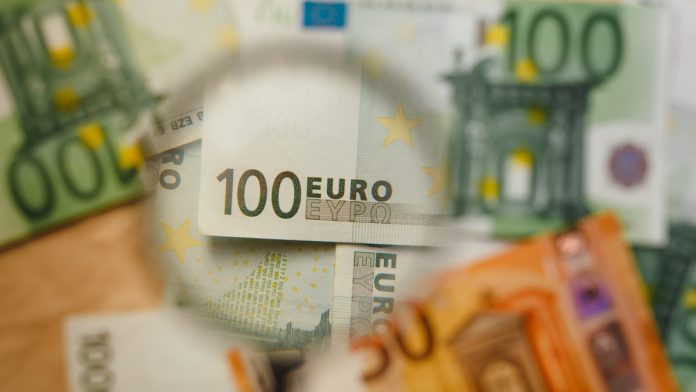- Pound (GBP) opens mildly lower after CBI warns on business growth
- BoE rate decision on Thursday
- Euro (EUR) struggles last week amid a strong USD
- EUR looks to Eurozone GDP
The Pound Euro (GBP/EUR) exchange rate is edging lower on Monday after solid gains last week. The pair gained 0.6% across the previous week, settling on Friday at €1.2025 close to a fresh 23 month high reached earlier in the week. At 05:45 UTC, GBP/EUR trades -0.06% at €1.2018.
The pound pushed higher versus he Euro last week despite several headwinds. Geopolitical concerns (Russia – Ukraine ) hit risk sentiment at the start of the week and domestic politics were also under the spotlight as Prime Minister Boris Johnson clung to power for another week amid the ongoing “party gate” scandal.
Both of these risks remain. Although comments from Foreign Secretary Liz Truss over the weekend suggest that she is confident that the future is assured.
Data wise, the Confederation of Business Industry warned that British businesses grew at the slowest rate since April 2021 over the past three months. Demand in face-to-face services saw activity take a hard hit, just as the economy had returned to its pre-pandemic size.
There is plenty of data for investors to focus on this week. Attention will also be on the Bank of England which is due to announce its monetary policy decision on Thursday. The BoE raise interest rates unexpectedly last month and there is a growing expectation that they will raise interest rates again this week.
The euro came under pressure across the previous week on the back of the stronger US Dollar. The Dollar ran higher on the back of a more hawkish Federal Reserve. The Euro trades inversely to the US Dollar.
Adding to the Euro’s woes, German GDP slowed by more than expected in the final quarter of the year. GDP growth was 1.4% quarter on quarter, down from 2.5% in Q3.
Looking ahead, Eurozone GDP data will be in focus. Expectations are for economic growth to have slowed dramatically to just 0.3% quarter on quarter, down from 2.2%. Slow growth could hurt demand for the euro ahead of the ECB rate decision on Thursday.





